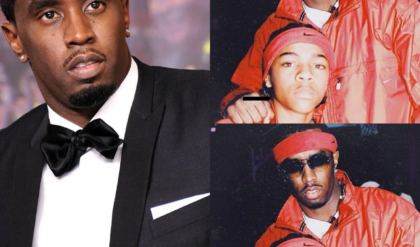
Superman, the Man of Steel, has long stood as a towering figure in comic book history, inspiring generations with his tales of heroism, morality, and hope. But what many fans might not know is that this iconic character wasn’t conjured solely from the imagination of his creators, Jerry Siegel and Joe Shuster. In fact, Superman’s conception draws from a rich tapestry of influences, including ancient mythology, biblical references, and even contemporary heroes of the 20th century. Let’s take a deep dive into the surprising real-life inspirations that shaped the world’s most famous superhero.
1. Superman’s Kryptonian Roots: Echoes of Hercules and Samson
When we think of Superman’s incredible strength and feats, we can’t help but see parallels with the legendary heroes of ancient mythology. Take Hercules, for instance—one of the most famous demigods in Greek mythology. Much like Superman, Hercules was known for his superhuman strength and for taking on seemingly impossible tasks, such as defeating the Hydra or capturing the Erymanthian Boar. Superman, with his super-strength and sense of duty, mirrors these mythological tales of heroism and sacrifice.
Similarly, Superman’s story contains striking resemblances to Samson, a biblical figure famed for his strength, bestowed upon him by God. Samson’s feats of power, such as tearing a lion apart with his bare hands or toppling an entire temple, evoke the same kind of larger-than-life challenges Superman faces regularly. His moral struggles, much like Samson’s, often center on balancing immense power with responsibility.
2. Moses and the Journey of Survival
Superman’s journey from Krypton to Earth—being sent away by his parents as a last hope—bears a close resemblance to the story of Moses. In the biblical tale, Moses is placed in a basket and sent down the Nile to escape certain death. He is later discovered and raised by a foreign family, growing up to become a savior of his people.
Superman’s story follows a similar trajectory. Sent away by his parents from a dying planet, he is discovered and raised by the Kents, who instill in him the values of truth and justice. Just like Moses, Superman later grows into his role as a protector and leader, using his extraordinary powers for the greater good of humanity.
3. Nietzsche’s Übermensch and the Philosophy of Superman
Philosopher Friedrich Nietzsche coined the term Übermensch (often translated as “superman” or “overman”) in his work Thus Spoke Zarathustra. The Übermensch concept described a superior individual who transcends conventional morality and embraces his own set of values. While Siegel and Shuster may not have directly drawn from Nietzsche’s philosophy, the notion of Superman as an idealized figure—standing above humanity and embodying moral perfection—certainly resonates with Nietzsche’s vision of a higher being.
Superman, however, diverges from Nietzsche’s Übermensch in that he upholds a moral code that aligns with traditional ethics of justice and altruism. He uses his power not for self-gain but to protect the innocent and bring order to chaos.
4. Clark Kent: The Everyday Hero Next Door
While Superman’s abilities make him extraordinary, it’s his alter ego, Clark Kent, who grounds him in reality. The mild-mannered, somewhat awkward reporter at The Daily Planet reflects the everyman persona that many people can relate to. In fact, some say that Siegel and Shuster modeled Clark Kent after themselves—two ordinary men with a dream to create a character who could be extraordinary.
The character of Clark Kent also taps into the theme of duality—where an individual has the power to change the world but must hide his true nature. This theme echoes literary characters like Dr. Jekyll and Mr. Hyde or even Bruce Wayne and Batman. Clark Kent represents the human side of Superman, a side that strives to fit in, maintain relationships, and live a life of meaning beyond his superhero duties.
5. Superman’s Modern Heroes: World War II Influences
Superman’s debut in 1938 came at a time when the world was on the brink of World War II. He became a symbol of hope and justice, not only in fiction but in reality. His heroic stance against tyranny and injustice reflected the growing sentiment in America and the world at large—of standing up to the threats of fascism and totalitarianism.
Many have speculated that Superman’s ongoing fight for truth and justice mirrored the actions of real-life heroes of the time. Soldiers, politicians, and resistance fighters—all who fought to protect freedom during the war—might have inspired his character. Superman embodied the American ideals of liberty and courage, giving readers a beacon of hope during dark times.
6. Superheroes and Social Justice
Superman’s role as a champion of justice has only grown stronger in modern interpretations. His fights against corruption, discrimination, and social injustice have placed him in a unique position as a superhero who doesn’t just battle supervillains but also addresses real-world issues. The character has often been used to highlight important social causes, from racism to environmentalism, further solidifying his place as a hero who transcends fiction and embodies the moral ideals society strives for.
Conclusion: A Hero for All Ages
Superman’s evolution from mythological and biblical roots to a modern-day champion for justice is a testament to the timelessness of his character. He continues to resonate with fans because he represents something greater than any one individual—a symbol of hope, strength, and perseverance. His story, rooted in ancient legends and inspired by real-life heroes, reminds us that the essence of heroism is not found in superpowers alone but in the courage to stand up for what is right. Superman is more than just a comic book character; he is the embodiment of humanity’s highest ideals.





